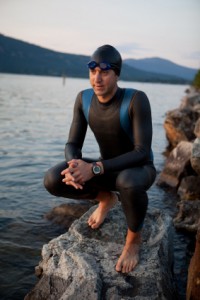In part one of this post we discussed the possibility of Coaching Without Periodisation.
In part two we will look at an alternate way of working with athletes and helping each individual you coach to realise their full potential and achieve their training and performance goals.
So who are we talking about?
Beginning coaches don’t use a lot of periodisation – because they haven’t learnt how. They don’t start using it until they get indoctrinated on the concept of periodisation as they progress through the coach education pathway.
In the beginning all they have is enthusiasm, commitment, a love of the sport and the desire to help people achieve all they can achieve….what a great place to start!
And believe it or not, many world class coaches don’t rely on periodisation either. They achieve success by their ability to understand and work with individual athletes and they are flexible and adaptable to the athlete’s changing needs.
So let’s focus on the big group in the middle – the vast majority of coaches in all sports who are P.P.s – Periodisation–philes.
Three reasons so many coaches rely on Periodisation.
1. It is easy;
2. That’s the way they learn to coach from coach educators;
3. Everyone else seems to do it.
Relying on Periodisation is Lazy Coaching.
Relying on periodisation is like enrolling in a University course then never attending a lecture.
You enrol in the classes. You get all the books and course materials. Then you sit at home and write papers, answer on-line quizzes and do all the assessment requirements from the comfort of your own room.
Sure, you will pass the class.
Sure, you will get a degree.
Sure, may even learn a lot.
But you also miss out on the most critical aspect of study: understanding.
By not going to classes and not sharing ideas with other students, by not getting engaged with debates on important topics, by not seeking out the lecturer and challenging them on different aspects of the course, you have missed out on the most important part of the learning process.
And it’s the same with coaching.
Sure, you can write an amazingly detailed periodised plan.
Sure, you can pass the Level 26 Coaching Course.
Sure, you can even develop a decent training program.
You can even call yourself a Coach.
But unless you are working with athletes, sharing ideas with them, learning from them, engaging with them and creating training programs which are flexible, adaptable and responsive to their needs, you don’t understand coaching.
People and Performance come before Periodisation and Programming…and not just in the dictionary.
Why do you coach?
To help people perform to their full potential.
You didn’t become a coach to write programs. You became a coach because you wanted to changes lives through sport: not to be the best at writing macro-cycles.
To thine own self be true: it’s time to go back to being a beginner coach again.
The alternative to Periodisation???
There is an alternative to Periodisation.
It’s called Coaching. You may have heard of it!
C – Coach
Guess what? You can and you will coach more effectively without a reliance on periodisation.
Why?
Because you actually have to coach.
You can’t stand on the sideline and yell instructions from a piece of paper.
You can’t write a workout on the whiteboard and stand back while the athletes complete it.
You can’t point to your laptop and tell the athletes they are going to do session 37 in your annual plan.
Once you release yourself from the shackles of periodisation you can go back to doing what you are good at: coaching people.
O – Observe
Great coaches are great observers of human behaviour.
You don’t need a blood test or a POMS score to know if you athletes are tired. Watch them. Check out their body language. Look at their eye contact – or lack of it. Observe the way they engage or don’t engage with their team mates and coaches.
And conversely, you don’t need a sign-post to tell you when you athletes are ready and raring to go. Listen to them talk. Watch their interactions with others in the group. Check out their enthusiasm, e.g. starting training early, encouraging others, asking you for additional work.
A – Assess
Every sport has a way of assessing the “readiness” of athletes to train to their full potential.
For example, Swimming has a great concept called I.C.S. (Individual Checking Speed) which is a sub-maximal swim performed during warm up at a set speed in which heart rate, technical efficiency and RPE are measured to determine how ready the athlete is to perform training at that session. Then based on this assessment, the coach makes changes to training intensity and volume to meet the athletes specific needs at that moment.
Other sports have similar readiness measurement tools….use them! Or make up your own. But find a way to assess how ready your athletes are to train at that moment in time.
C – Create
Coaching is a true creative endeavour and the great coaches possess a kind of creative genius.
This is why periodisation has become so popular: it is easier than being creative.
But, today, with the Internet: everyone knows what you know. Anyone can get anything, anywhere, anytime and for free…so it is no longer knowledge which differentiates you from your competition.
It is you ability to create new, original, different and most importantly, athlete relevant training (A.R.T.) which will ensure your success.
Creativity is the currency of successful coaching. How much do you have in the bank?
H – Help
Remember why you got into coaching in the first place?
To help people realise their full potential as athletes and as human beings? You got into it to make a difference!
Coaches choose to change lives and to help people be all they can be.
Go back to first principles: go back to helping first and writing programs a distance second.
Does not relying on Periodisation mean you don’t Plan????
No. In fact you have to be more organised and better planned than ever.
You actually need to be more of a student of your sport and more of a master of human behaviour than you have ever been.
But you don’t have to be a slave to some rigid, inflexible periodised plan that was written on your kitchen table months ago and which may keep the coach education guys happy and convinced you can coach but has little or no relevance to working with your athletes today.
Summary:
- Periodisation should be thrown in a box, along with analog televisions, newspapers and V8 cars as something that was a great idea at the time but now needs to move aside;
- The new coaching should be about coaching: that is, coaches should walk away from their laptops, their periodised charts and their guaranteed “never fail” training programs and engage with their athletes at every opportunity;
- The successful coach of the future will be the coach who is prepared to actually coach: to give more of themselves, more of their time, more of their human-ness and more of their creativity to the coaching experience.
Wayne Goldsmith




9 Comments
Hi Wayne, another great concept.
In my own coaching, I’ve got an overall plan of what I want to achieve but when it comes to individual teams I have to be very flexible when it comes to planning what I’m going to do for a session. A lot of the times I’m writting what I’m going to do at training the night before or just before I go to practice, as it gives my brain time to think from the previous game. Sometimes I even change things during practices. It all depends on the situation.
I really like the observe bit, during games and practices I’m always looking at how players carry themselves for that gives so much away about themselves. Do they have a spring in their step, are their shoulders dropping, are their answers guarded? There are so many others cues you can look for in players.
I’ve also never been to coaching courses where observing players and their mannerisims have been part of the material, yet understanding your players and their mannerisims and how they change when they get tired can have a huge impact on when you do subbing and can impact on the results of games.
Cheers
Robin
Thanks Robin.
I believe we have to shift from teaching coaches how to be amateur sports scientists, traffic cops, program writers and child minders and start teaching them how to coach.
The good news is, for the most part, coaching is highly intuitive and instinctive:in other words, coach your own way.
WG
I was about to say exactly what Robin did. I like to have a written plan of what I want to get done during the week/month/season but usually after a week the plan as completely changed. Wasn’t hard enough for some, too hard for others, or maybe some got bored with it.
Really anyone who writes a program in August when their championship is on May with no intent of changing it is just trying to write themselves out of a job.
Thanks Jeff.
Seen some incredible periodised plans – some I couldn’t even understand they were so detailed and brilliantly crafted.
Then I watched the guys who wrote them actually work with athletes…….it was about then I decided periodisation wasn’t the magic bullet it is painted out to be.
Thanks again,
WG
Thanks Wayne.
Great follow up to the first part.
Thanks David – appeciate the support.
WG
Plans are wonderful. It is a creative act to write a properly detailed plan. And they are not worth the paper they are written on/bytes on a hard drive if they are not living, breathing works of creation.
So many coaches get all too tied up in The Plan and forget they are coaching people. And not just people, but young people, unfinished people who have a lot of growing and learning to do still.
A coach absolutely has to have a plan, several plans in fact. But if a coach stops there and goes no farther it is pretty hard to find any life in their coaching. The coaches who have all these plans, written down and then locked into memory (years worth in many cases)and who still know when they have to take a detour from their plans to get to where they need to be, and have enough courage to say they do so, those coaches are worthy of respect.
Coaching is an act of creation, the creation of one of the finest work of art imaginable: a fully functioning human athlete with all the incredible and amazing details included. This work of art has no finish date, no due date, just status updates along the way.
No plan, however detailed, can encompass the wonderful path of this creation. No plan should be able to do so. Keep these two articles up front as much as possible, please, Wayne. It is such very important information.
Thanks for the thoughtful and insightful comment Michele.
I was speaking with a good friend last week, who in my view is the greatest coach I have ever known and he suggested that creativity was the determining factor in coaching success.
We discussed this concept further and agreed that the essence of greatness in any walk of life is uniqueness; being different and doing things first.
That’s a pretty good definition of creativity!
The longer I am in this industry I realise the greatest coaches I have met over the past 25 years have been blessed with creativity: creativity which is supported by discipline, hard work, persistence and self-belief.
Thanks again,
WG
Wayne, another post that hit the nail on the head. The irony will be to find enough coach educators who have REALLY coached in order to teach your followers how to do it for real…! Real elite coach development may therefore have to move even further in the direction of hands-on side by side mentoring.
Comments are closed.